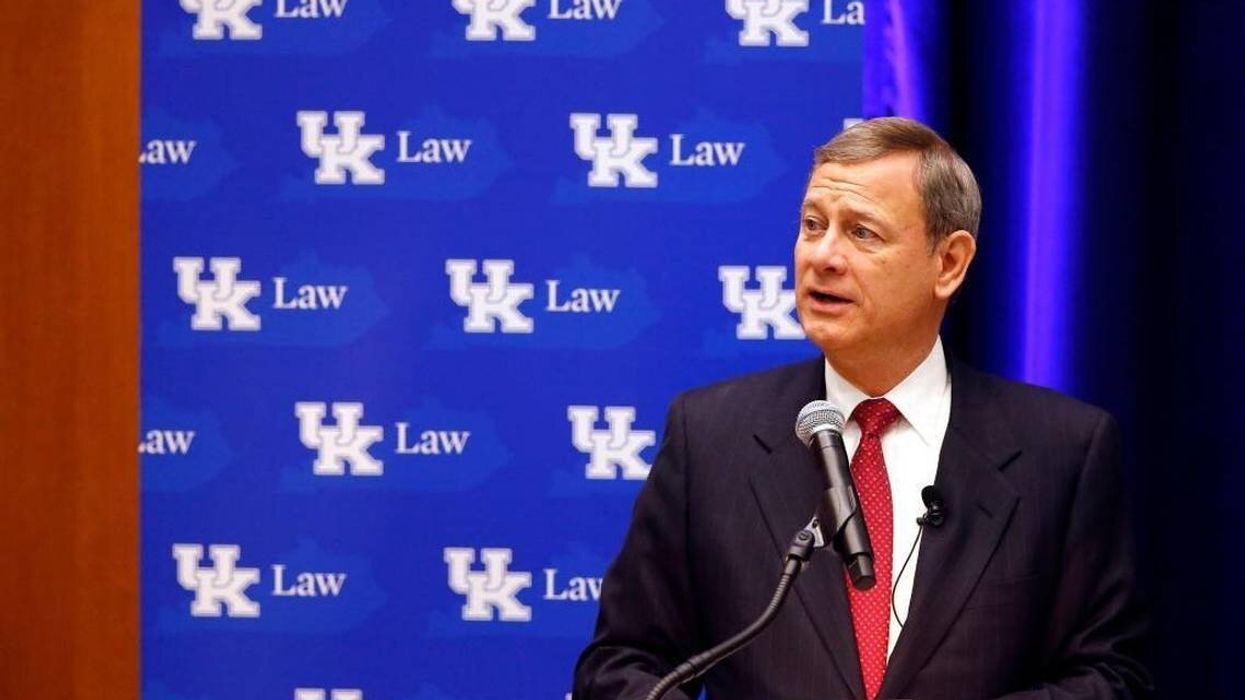Supreme Court could hand Trump 'powerful tool' that guarantees GOP 27 safe House seats

U.S. Supreme Court Justice John Roberts in 2022 (Creative Commons)
The Supreme Court is set to hear Louisiana v. Callais on Wednesday, marking a rare re-argument in a voting rights dispute that could undermine one of the last protections against racial vote dilution in the U.S. The case centers on whether the court will allow Section 2 of the Voting Rights Act, which bars practices that weaken minority voting power, to be challenged and effectively dismantled.
In an article for Slate Magazine published Tuesday, political strategist Max Flugrath argued that the Supreme Court’s decision to rehear the case signals a deliberate effort to dismantle Section 2 of the Voting Rights Act, a provision designed to protect against racially discriminatory districting.
"If the justices remove the Voting Rights Act, it will hand the Trump regime a powerful tool to permanently weaken fair representation," the article read.
Flugrath said by reopening arguments, the court’s conservative majority appears to telegraph an intent to strike down a core legal tool used to challenge maps that dilute the voting power of communities of color.
Flugrath warned that eliminating Section 2 would have sweeping consequences.
He said that combined with Republican gerrymandering efforts, its removal could enable the GOP to seize as many as 27 additional safe House seats — with at least 19 of those directly linked to the loss of Section 2 protections — locking in one‑party control of the House for decades, according to analyses from Fair Fight Action and Black Voters Matter Fund.
He noted that in Louisiana, the case began when a court ruled the state’s map unlawfully weakened Black voters’ influence, ordering legislators to redraw it to include a second majority-Black district.
When state lawmakers complied and produced a remedial map, Flugrath recounted, a group of non‑Black voters sued again, claiming that the remedy itself constituted unconstitutional racial discrimination.
Flugrath condemned the logic of that suit, calling its reasoning a twist on the very constitutional amendments designed to guard against racial exclusion. He observed that lower courts had accepted it, and that both Louisiana’s Republican leaders and original plaintiffs had pushed for overturning the ruling — though after the court agreed to rehear the matter, the same officials reversed course to ask the justices to invalidate Section 2 outright.
Flugrath cited Justice Clarence Thomas’ dissent from the rehearing order, which he said frames the choice as either allowing what Thomas calls “patent racial gerrymandering” or admitting that a Section 2 violation “is insufficient to justify a race‑based remedy.”
"The danger isn’t theoretical," the writer said.
He noted that Thomas is saying that even proven racial discrimination in political maps cannot justify race-conscious remedies. He also referred to Justice Brett Kavanaugh’s suggestion that race‑based protections under Section 2 cannot persist indefinitely, indicating they may support stripping its authority.
Flugrath argued that if the court sides with the challengers, lawmakers who design maps to suppress minority participation could claim that race-conscious remedies themselves violate constitutional equal protection.
He described this as a new defense of discriminatory maps that would block challenges not only to congressional maps but also to redistricting in state legislatures, city councils and school boards nationwide.
Flugrath warned: "If the far-right justices’ reasoning prevails, politicians who gerrymander to silence voters of color will have a new defense: Fixing racial discrimination is discrimination itself. It’s an Orwellian logic that would make it nearly impossible to challenge unfair maps."
He added: "The result would essentially be a return to the pre-1965 Jim Crow playbook, masked in pseudo-constitutional language."
"Fair maps, free elections, and a representative Congress remain the most powerful tools we have to stop the Trump regime’s push for authoritarianism — but only if we use them," the writer concluded.

